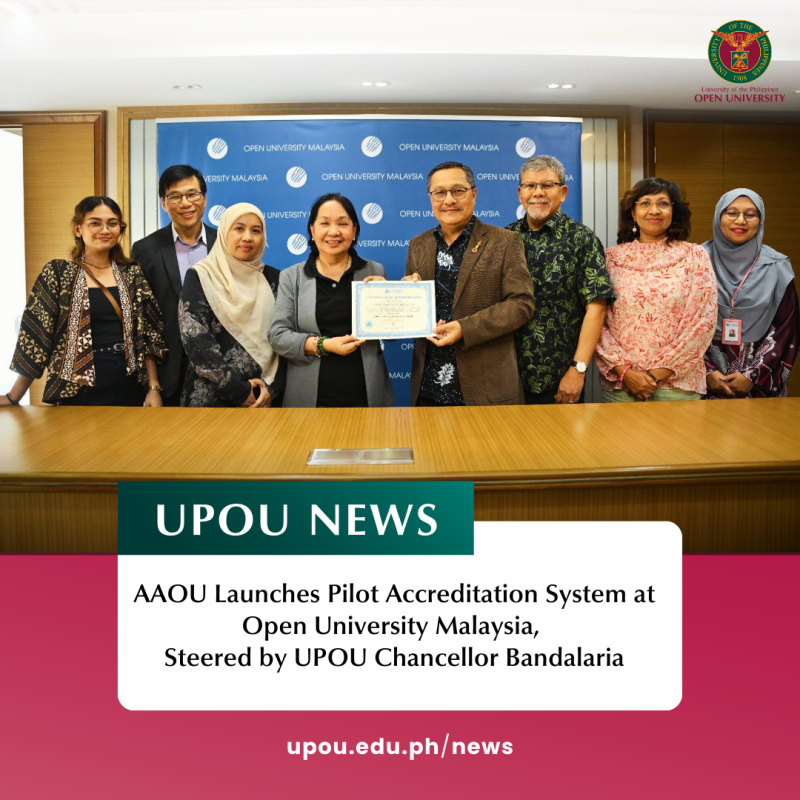
The Asian Association of Open Universities (AAOU) officially launched its QA-based Accreditation System pilot run for Technology-Enhanced and Technology-Mediated Higher Education in the Age of Technological Disruptions at Open University Malaysia (OUM) from 16 to 18 July 2024. The event, chaired by UPOU Chancellor Melinda dela Peña Bandalaria, marked a significant step towards advancing quality assurance in higher education across the region.
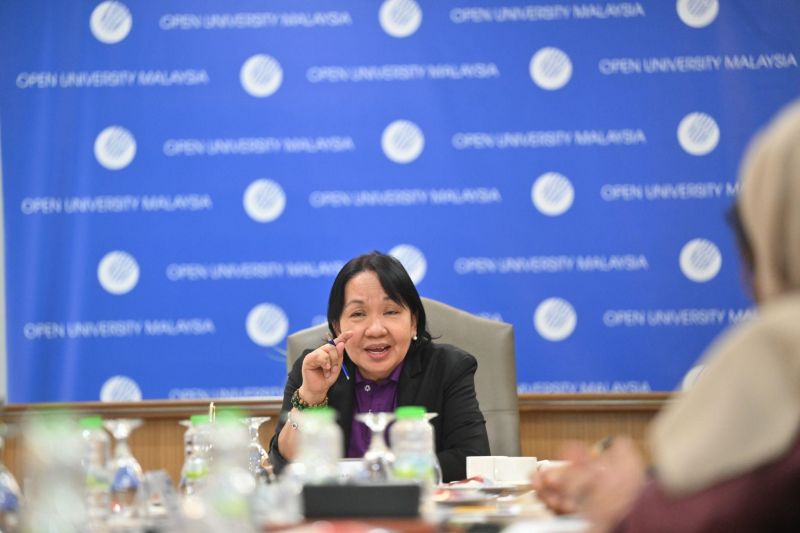
Chancellor Melinda dela Peña Bandalaria, Chair of the AAOU Accreditation Team Pilot Run at OUM, provides an overview of the AAOU QA-Based Accreditation System.
The accreditation team included notable members such as Prof. Li Kam Cheong, Dean of the School of Open Learning at Hong Kong Metropolitan University, as the International Expert Member; Ms. Mazlifah Binti Mohiyaddin, Associate Director of Quality Assurance and Government Relations at Wawasan Open University, as the Local Expert Member; and Ms. Shaira Tanay, University Research Associate II at UPOU, as the Accreditation Coordinator.
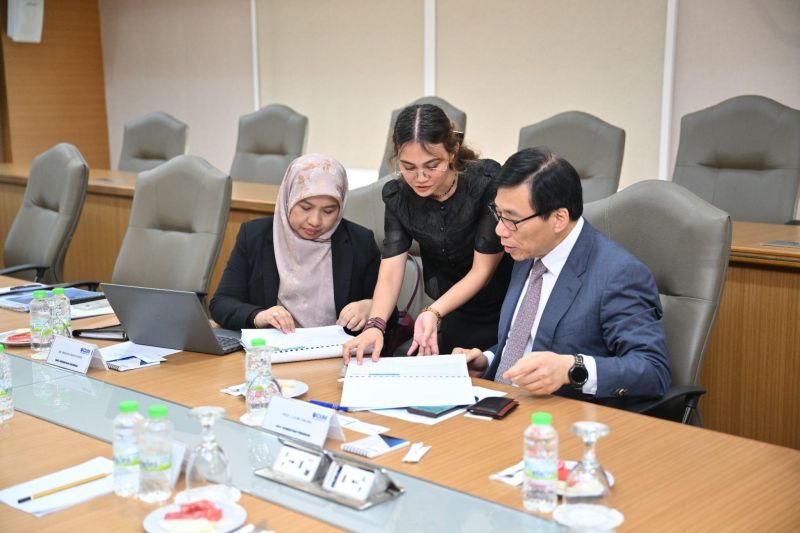
The accreditation team, which included Prof. Li Kam Cheong, Ms. Mazlifah Binti Mohiyaddin, and Ms. Shaira Tanay, discussed the rating system during the pilot run.
Day 1: Opening and Initial Sessions
OUM President Dr. Ahmad Izanee Awang and the OUM faculty and staff warmly welcomed the accreditation team. In his opening remarks, President Awang expressed his gratitude and honor for Open University Malaysia being the first to undergo the AAOU Accreditation System pilot run. He emphasized the significance of this initiative and his hope that OUM would set a benchmark for future accreditation efforts.
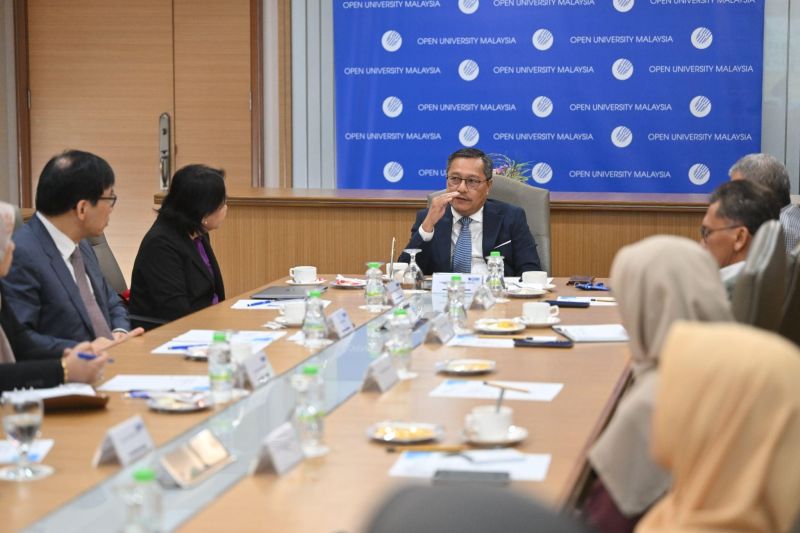
OUM President Dr. Ahmad Izanee Awang delivers his welcome and opening remarks.
To provide an overview and background of OUM, its corporate video was shown to the Accreditation Team. The morning session concluded with a group photo, capturing the beginning of this significant accreditation milestone.
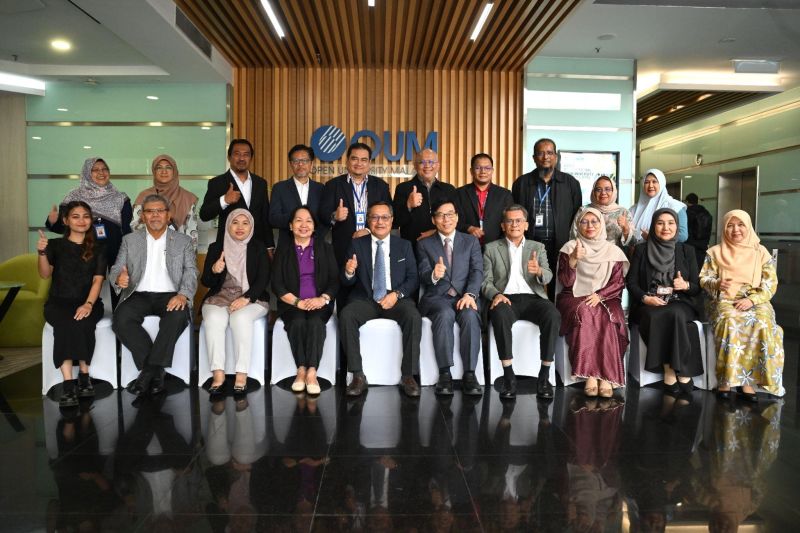
The AAOU Accreditation Team with the OUM President, Officials, and Faculty and Staff Members
After a morning tea break, the accreditation team engaged with the University Executive Management Committee to review Criterion 1: Vision, Mission, Management, and Planning and Criterion 2: Leadership and Strategic Management. They assessed how effectively the university’s vision and mission are integrated into its strategic planning and management practices.
The afternoon sessions included discussions with the Group Strategic Planning team, the Centre for Learner Affairs, and the Centre for Teaching and Learning Management, focusing on Criterion 3: Learners and Learner Support. Additionally, the team met with the Group Human Resources and Administrative Services to review Criterion 4: Human Resources Development and Management. These discussions centered on evaluating the university’s strategies for supporting learners and the effectiveness of its human resources management.
Day 2: Faculty and Support Services
The second day of the accreditation process began with a meeting involving Faculty Deans and academic staff. During this meeting, the team reviewed Criterion 5: Program Design and Development and Criterion 6: Course Design and Development. This was followed by a session with the Assessment & Examination Division to discuss Criterion 7: Learner Assessment.
The team then continued their evaluation with meetings involving the Centre for Learning Technology & Digital Services, which focused on Criterion 8: Infrastructure, Media, and Learning Resources Management, and the Centre for Research & Innovation, which reviewed Criterion 9: Research Management. The afternoon sessions included discussions with the Centre for Corporate Communication about Criterion 10: Community Involvement/Extension Service/Public Service.
Additionally, given that this was the inaugural pilot run, the team held a session with the Centre for Quality Assurance to collect feedback to refine the accreditation instrument and process. This was a crucial step in enhancing the effectiveness of the accreditation system. The day concluded with a visit to the Digital Library and a tea break.
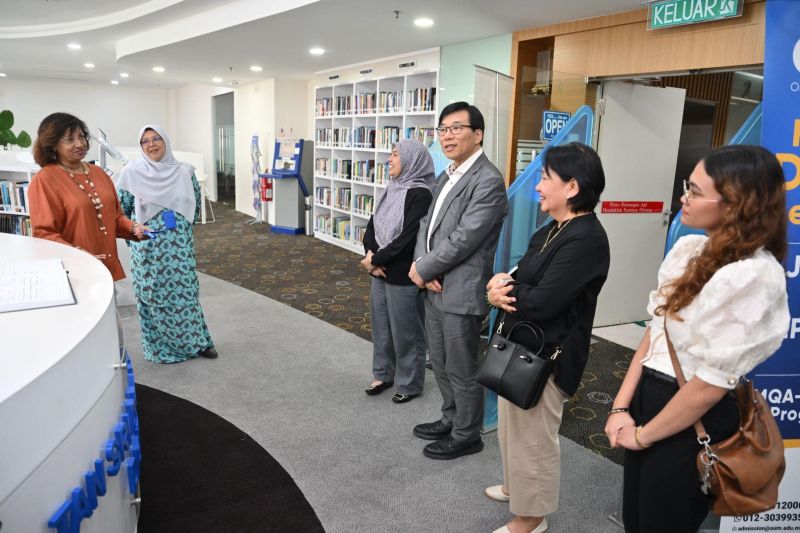
The Accreditation Team concludes the day with a visit to the OUM Digital Library.
Day 3: Site Visit and Final Meetings
The final day of the accreditation process started with a visit to the Shah Alam Learning Centre (SALC). The Learning Centre Director briefed the accreditation team and conducted a facilities visit, including a session with students.
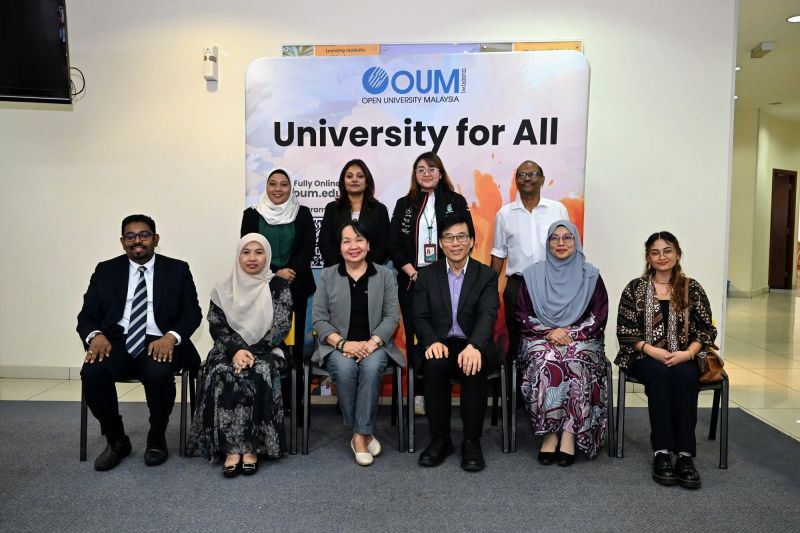
The AAOU Accreditation Team with The OUM Shah Alam Learning Centre Director and students who participated in the interview.
The afternoon was dedicated to coordinating the findings between the OUM Centre for Quality Assurance and the AAOU Accreditation Team. The results of the accreditation exercise are detailed for each of the criteria evaluated, including the institution’s ratings, offering a quantitative assessment of its performance. Significant observations regarding the institution’s quality are also presented, highlighting key findings from the review process. Commendations are also provided to acknowledge the institution’s strengths and exemplary practices. Areas for improvement are identified, outlining specific gaps and deficiencies that must be addressed. Finally, recommendations are given to offer strategic guidance for enhancing the institution’s quality, including actionable steps and suggested timelines for implementation.
The event concluded with an awarding of the Certificate of Accreditation. A farewell dinner hosted by OUM followed, wrapping up the three-day accreditation pilot.
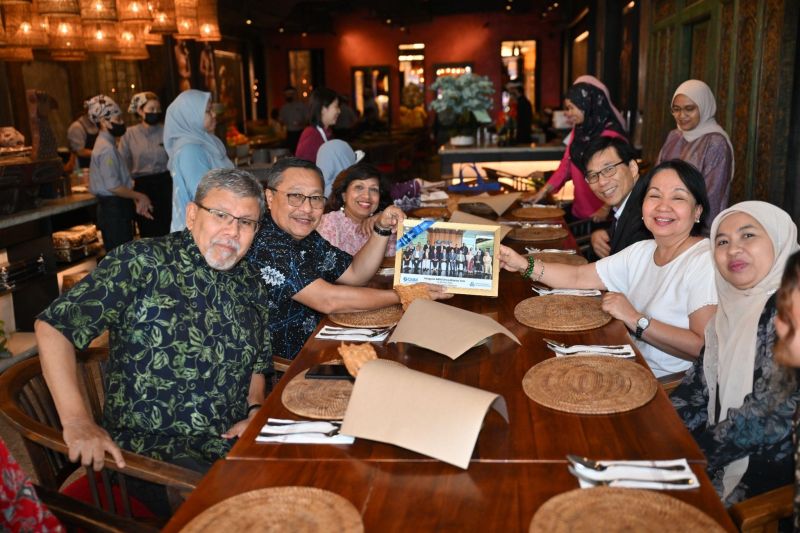
During the farewell dinner, OUM presented a token featuring a group photo to commemorate the inaugural visit of the AAOU accreditation team at OUM.
The successful launch of this accreditation system reflects AAOU’s commitment to ensuring quality and innovation in higher education, setting a benchmark for institutions across the region. This pilot run, under the leadership of UPOU Chancellor Melinda dela Peña Bandalaria, paves the way for a more robust and standardized approach to quality assurance in technology-enhanced and technology-mediated higher education.
Written by Shaira Tanay ♦ Edited by Dr. Myra C. Almodiel and Anna Cañas-Llamas








